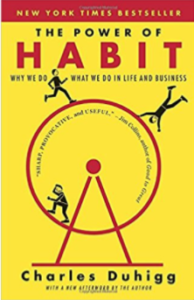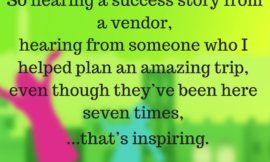Aviv Landau-Artzi is an entrepreneur and business woman who believes that entrepreneurs must follow their own truths. She helps others to create their maps to success while staying in tune with her own inner voice.
For Aviv Landau-Artzi, entrepreneurship is in her DNA. From a young age she wasn’t interested in what her parents thought or what the neighbors would say. She is an independent thinker who wants to share her ideas and practical knowledge to help entrepreneurs turn their ideas into products change the world.
The Entrepreneur Who Never Fails
“Look at where everybody is going, and go the opposite way,” is Aviv’s philosophy, “just because everybody is going one way, doesn’t mean it’s right,” she says.
I ask Aviv to elaborate.
“I’m not criticizing and I’m not judging. I’m saying, I want to explore what suits me.” As she continues to tell me about her philosophy as an entrepreneur, I understand that what she’s after is a different way of thinking while constantly ensuring that her actions are aligned with her belief system.
Taking calculated risks is all part of the game. And for Aviv, if you’ve calculated the risks and you lose, you haven’t failed; you’ve gained experience, understanding and insight.
The Rebel Entrepreneur
During our meeting, Aviv shared the idea that a rebel is an
my meeting with Aviv, she shared her insights on her understanding of entrepreneurs and entrepreneurship:
- An entrepreneur is willing to look in places that others don’t imagine.
- An entrepreneur is willing to take risks.
- And entrepreneur who is willing to take risks, is also willing to pay the price.
- An entrepreneur doesn’t think about failing. She thinks about what she can learn from the experience.
- An entrepreneur is always thinking about the future. She believes in a “roof strategy;” if someone closes the door, she’ll come in through the window. If the window is closed, she’ll come through the roof.
- An entrepreneur grows in an environment of leaders.
- Entrepreneurs are constantly learning – from others, from books, from their networks, from conferences they attend.
- An entrepreneur recognizes opportunities. She knows how to read maps and trends.
- Entrepreneurs must know when to be big in small things and when to be small in the big things; it’s knowing when to handle details because they are vital for overall success and when to let go of things because they don’t affect the big picture.
- Entrepreneurs give themselves the legitimacy to dream; they don’t care what others think about them.
- The imagination of an entrepreneur is constantly at work.
I’m grateful to Aviv for devoting time to our meeting. You can learn more about Aviv and her work at www.innomastery.co
Takeaways
During our hour long conversation, Aviv and I spoke about many subjects. Here are some more takeaways from our conversation:
1. Do you have mentors?
All the time. Business people, professors in academia. People who are are first and foremost leaders. Emma Butin has also helped me with a few things, including helping me to get specific about my DNA.
2. What are 3 books that you recommend to entrepreneurs?
 i. Jonathan Livingston Seagull by Richard Bach
i. Jonathan Livingston Seagull by Richard Bach
It’s not specifically related to entrepreneurs, but it influenced me my entrepreneurial thinking; knowing when to listen to yourself and doing what you think is right despite what others are saying.
 ii. The Power of Habit by Charles Duhigg
ii. The Power of Habit by Charles Duhigg
If people become aware of their habits and learn how to change them, it will help them personally, professionally and socially. It will also help them to develop flexible thinking and solve problems and think about things from a different perspective.
 iii. The Biology of Belief by Bruce H. Lipton
iii. The Biology of Belief by Bruce H. Lipton
The reason, even for cynics, or especially cynics – The writer is a biologist, a scientist who demonstrates how tiny molecules can affect health, eliminate restrictive beliefs and beliefs And creating new concepts and beliefs.
3. Can you share a process that helps you?
- Don’t go into your email or Facebook for the first 3-4 hours of your day. Instead, define the 3 most important goals of your day, preferably the more complex or difficult ones. Don’t get off your chair, until you finish them.
- Put everything into tables to keep organized. Think of a table as sketching a model of what it is you’re trying to do.

